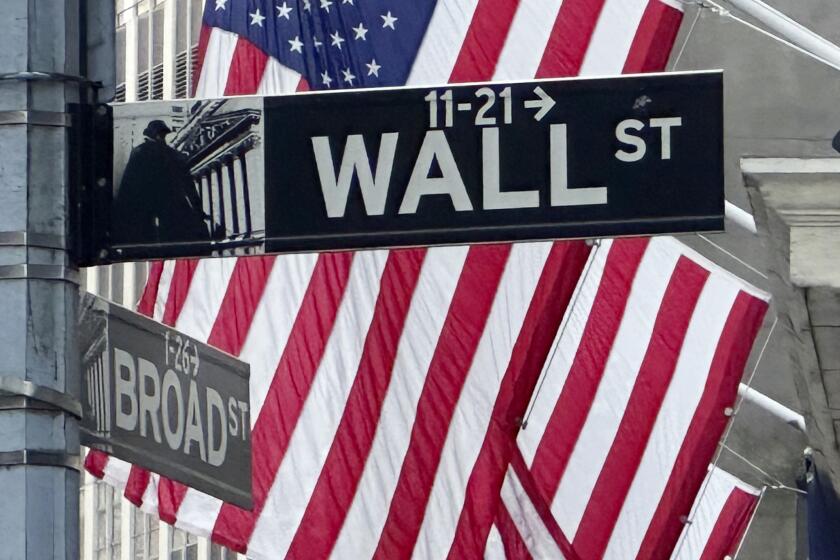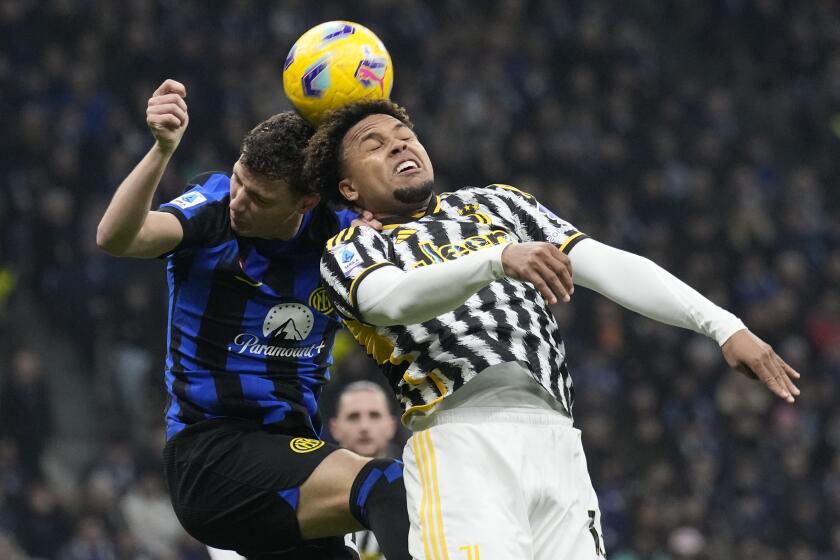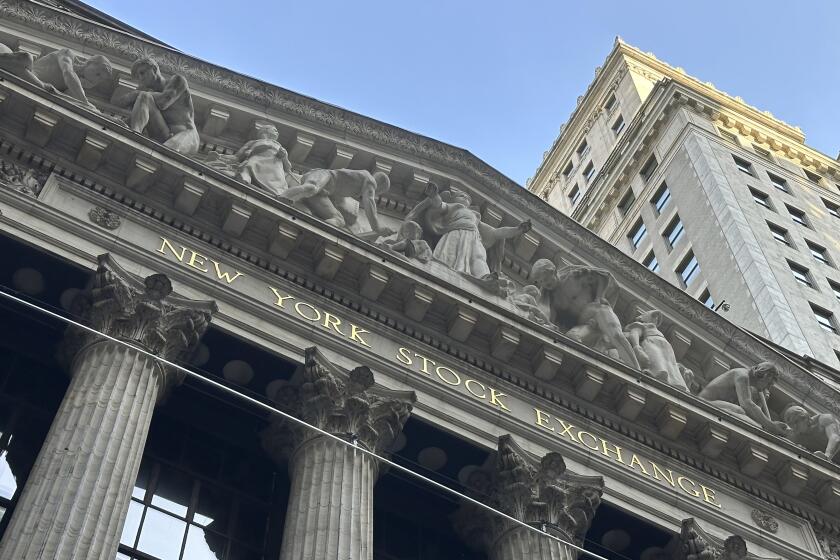Grand Jury Asserts Wall Street Firm Profited on Insider Trades
In the latest development in Wall Street’s insider trading scandal, a federal grand jury on Thursday indicted three top securities traders on multiple felony counts of fraud and conspiracy.
The indictment, which was expected, broadens what is known about the federal investigation by asserting for the first time that Goldman, Sachs & Co., which employed one of the defendants, itself profited from the alleged trading scheme.
Federal prosecutors said some of the alleged insider trading was done for the firm’s own account but did not say how much profit they believe Goldman turned and have not charged the firm--one of Wall Street’s most prominent investment houses--with a crime.
The indictment, however, also places certain key trades by two defendants, ostensibly made on the basis of inside information, on dates that came after that information was publicly disclosed. Lawyers familiar with the case contended Thursday that those details may weaken the government’s case.
Charged with one count each of conspiracy and three each of securities fraud were Robert M. Freeman, 44, a partner and the head of arbitrage trading at Goldman, Sachs; Richard B. Wigton, 52, the head of risk arbitrage at Kidder, Peabody & Co., and Timothy L. Tabor, 33, a former trader at Kidder. The three face total jail sentences of 20 years each and fines of at least $250,000 if convicted on all counts.
The charges against Freeman, Wigton and Tabor were all based on evidence provided to authorities by Martin A. Siegel, a former top mergers specialist at Kidder who had since moved to the firm of Drexel Burnham Lambert Inc. The day after their arrests, Siegel himself pleaded guilty to insider trading charges; he is awaiting sentencing.
Siegel had been implicated in a wide range of illegal insider trades by Ivan F. Boesky, the stock speculator who was forced in November to settle Securities and Exchange Commission charges of insider trading. Boesky agreed to pay $100 million in fines and penalties and to plead guilty later to a federal felony count.
The arrests of Freeman, Wigton and Tabor on Feb. 11 and 12 brought an explosive reaction on Wall Street.
One reason was the fashion in which the men were treated by the authorities: Wigton and Freeman were arrested at their offices during the business day in full view of the men’s subordinates. Wigton was handcuffed by federal marshals as his traders watched. Tabor had been arrested at his Manhattan home late the previous evening and spent the night in jail.
Lawyers for all three of the latest defendants proclaimed their clients’ innocence Thursday. “We’re looking forward to trying this case,” said Paul J. Curran, a former U.S. attorney who is representing Freeman.
Andrew Lawler, the attorney for Tabor, said his client would plead innocent when all three are arraigned on April 16. And Stanley S. Arkin, the attorney for Wigton, called the indictment “simply an injustice.”
Faith in Freeman
A spokesman for Goldman, Sachs said of Freeman: “We know him and trust him . . . . Based on all we now know, we continue to believe that he did not act illegally.”
Siegel, who cooperated with the government, contended that he and Freeman had reached an agreement to swap confidential information about the takeover deals being done at each other’s firms. Each would then trade on each other’s tips.
Although the government charged that such trading took place in “several” stocks between June, 1984, and January, 1986, it has specifically cited the trading in only two deals. One was the 1985 attempt by Texas oilman T. Boone Pickens to take over Unocal, which was represented by Goldman, Sachs. The other was a 1985 takeover attempt of Storer Communications by Kohlberg Kravis Roberts, a leveraged-buyout firm that was represented by Kidder, Peabody.
In its original complaint issued at the time of the defendants’ arrests, the government charged that Freeman had tipped Siegel in April, 1985, of Unocal’s plans for a defensive maneuver that would defeat Pickens’ assault. Freeman also allegedly gave Siegel important details of Unocal’s share holdings. The details made it clear that Unocal’s stock price was destined to fall.
Siegel and the other Kidder stock traders, including Wigton and Tabor, then decided to buy “put” options--through which they could profit as the Unocal price fell.
Thursday’s indictment, however, makes clear that the Kidder “put” purchases did not take place until May 15-17--almost a month after Unocal’s plans were disclosed to the public.
“The indictment is inconsistent with the complaint,” said one attorney familiar with the defense. The put purchases are the basis of the three fraud charges against the defendants.






